current news
22 Şubat 2015 Pazar
İnsanoğlunun eğitimi ne zaman biter araştırma: İnsanoğlunun eğitimi ne zaman biter araştırma: wor...
İnsanoğlunun eğitimi ne zaman biter araştırma: İnsanoğlunun eğitimi ne zaman biter araştırma: wor...: İnsanoğlunun eğitimi ne zaman biter araştırma: wordpress sıte kurmak çok basıt bu yöntemle : WORDPRESS SİTE KURMAK b...
13 Şubat 2015 Cuma
Boycott of schools begins across Turkey as police fire water cannons on protesters
Boycott of schools begins across Turkey as police fire water cannons on protesters
Police fired water cannons on protesters in İzmir. DHA Photo
Protesters, consisting of union and association members, teachers, parents and students, gathered in front of schools and marched in several cities across Turkey, including Istanbul, Ankara, Eskişehir, İzmir, Edirne, Artvin and Antalya.
Police forces have been dispatched to the schools where people gathered for the boycott, while some of the school administrations locked the doors to prevent teachers and students from leaving the buildings.
Around 400 people attended a march organized by Eğitim-Sen in Istanbul’s Kadıköy as a part of the boycott.
Eğitim-Sen official Turgut Yokuş said they would never allow the education system to go under the complete control of the government, calling on the authorities to end policies that polarize society and halt practices that are “against scientific and secular education.”
Around 10 people have reportedly been detained by police at a middle school in Istanbul’s Gülsuyu neighborhood. Police also intervened against a crowd in front of a school in the Çankaya district of capital Ankara and detained some people, according to reports.
Police intervention in İzmir
Police fired water cannons on protesters who gathered on a simultaneous call for a boycott of schools by the Joint June Movement (BHH) in the Aegean province of İzmir.
The İzmir Governor’s Office notified the provincial education directorate to warn that the personnel and students who attended the “Boycott for Secular and Scientific Education” organized by the BHH would face disciplinary proceedings.
İzmir Governor Mustafa Toprak released a statement saying the office had moved to take measures “to protect students from negative thoughts and environments.”
Meanwhile, Onur Kılıç, a member of the BHH and the Freedom and Solidarity Party (ÖDP), who was detained by police on Feb. 12 on charges of insulting President Recep Tayyip Erdoğan, was arrested by a court on Feb. 13.
A prosecutor sent Kılıç to the courthouse on Feb. 13, demanding his arrest despite his refusal to give a testimony.
In his testimony to the İzmir 5th Court of Peace, Kılıç denied that he shouted a slogan which can be considered a crime, saying he only attended a march to protest against compulsory religion classes and the transformation of some high schools into religious vocational imam hatip schools.
February/13/2015
12 Şubat 2015 Perşembe
Man Shot Dead At Irish Traveller Wedding
Man Shot Dead At Irish Traveller Wedding
The bride is said to have been preparing to walk up the aisle when the shooting began at a church in Co Fermanagh.
A man in his sixties has died after he and another man were gunned down at a village wedding in Co Fermanagh.
It is understood the wedding was between two members of the
travelling community and the shooting began as the bride prepared to
walk up the aisle at St Mary's Church in Newtownbutler.One man was reportedly shot in the chest, the other in the leg, while another man had a knife injury to his hand.
One of the victims was flown by helicopter to the South West Acute Hospital in Enniskillen but died from his injuries, the Fermanagh Herald reported.
The wedding went ahead despite the shooting.
Father Michael King was preparing to conduct the ceremony when the shooting happened outside.
He said: "The bride was standing at the back of the church waiting to come up the aisle and the next thing there was a bit of commotion at the back of the church - several women ran in and said 'there are shots, there are shots, there is somebody shooting'."
The priest said there had also been a disturbance before the wedding.
"There was an altercation in the car park long before the bride came - they were thumping and kicking each other," he said.
The families asked for the wedding to go on despite the shooting.
"They said 'father we would like you to proceed with the wedding', so I proceeded with the wedding," said Fr King.
"They spent at least half an hour inside the church at the end taking photographs."
Chief Inspector Michael Harvey, from the Police Service of Northern Ireland, said: "The victim was shot along with another man outside a chapel on Main Street in Newtownbutler at around 1pm this afternoon.
"The other man, who is in his thirties, is not believed to have sustained any life threatening injuries."
Councillor Thomas O'Reilly said people in the village - which only has a population of around 1,000 - were stunned by the violence.
"In a very small rural area and village such as Newtownbutler, it is shocking that something like this would happen."
11 Şubat 2015 Çarşamba
Minsk for Ukraine crisis summit
Minsk for Ukraine crisis summit
Minsk, Belarus (CNN)All
eyes are on Minsk on Wednesday as officials from Russia, Ukraine and
separatist groups meet to hammer out proposals for a possible peace deal
for Ukraine.
Three of the main players -- French President Francois Hollande, German Chancellor Angela Merkel
and Ukrainian President Petro Poroshenko -- were in the Belarus capital
by early Wednesday evening. They were awaiting Russian President Vladimir Putin, who a Kremlin spokesman told CNN would fly to Minsk to take part in the meetings.
The
high-stakes summit comes against a backdrop of worsening conflict in
eastern Ukraine that has claimed a growing number of civilian lives.
Speaking
at a Cabinet meeting Wednesday prior to his arrival in Minsk,
Poroshenko said the summit was "the most important one so far I have had
as a President," Ukraine's state-run Ukrinform news agency reported.
The
President said he and Ukraine's lawmakers were ready to introduce
martial law across the country if "further irresponsible actions" lead
to more escalation of the conflict.
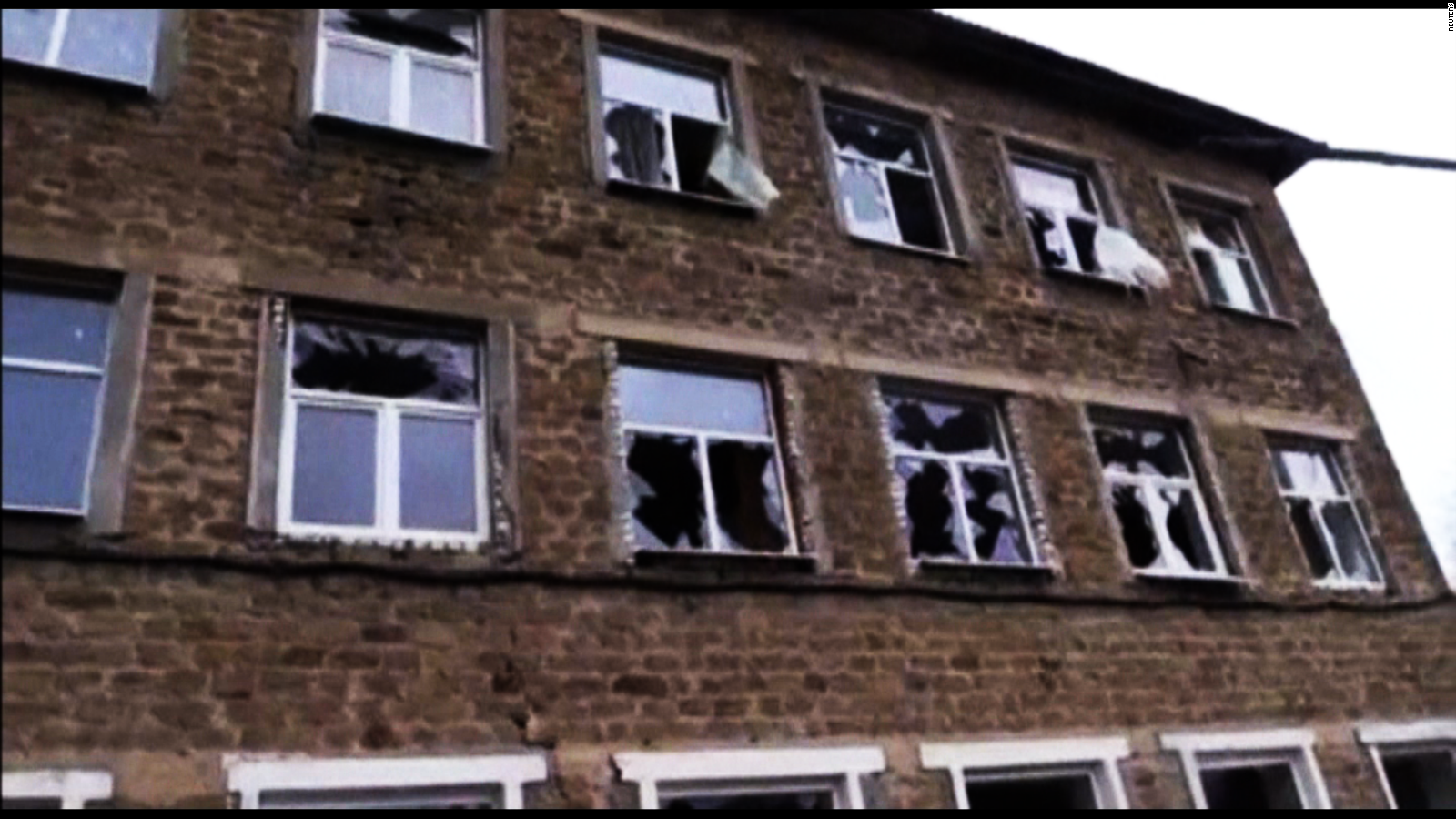
"It
will depend on the results of the summit whether we stop the aggressor
through diplomatic means or go to a totally different regime," he is
quoted as saying.
Video showed Denis
Pushilin of the self-proclaimed Donetsk People's Republic and Vladislav
Deinego of the Luhansk People's Republic at the talks, speaking with
reporters in Minsk on Tuesday night, putting to rest earlier doubts
about their attendance.
Monitors from the Organization for Security and Cooperation in Europe also attended the preliminary meeting.
But leaders involved in the talks still have a long road to travel before any lasting agreement is reached.
French
and German officials have sounded a note of caution about the prospects
of finding consensus, and the talks could run late into the night.
'Seize this chance'
The
main points of negotiations of the so-called Normandy group -- the
leaders of France, Germany, Russia and Ukraine -- are expected to be the
withdrawal of heavy weapons, the creation of a demilitarized zone and
the future status of the Donbas area in Ukraine, which comprises Luhansk
and Donetsk.
German Foreign Minister
Frank-Walter Steinmeier said Tuesday that the talks were "another huge
chance to take a big first step towards de-escalation, hopefully towards
a silencing of the weapons.
"But I
underline it again, nothing has been resolved yet. The taking place of
the summit alone is not a guarantee of its success. Therefore I urge and
expect Moscow and Kiev to take it seriously and in the face of imminent
military conflict really seize this chance."
Likely
sticking points include who will control Ukraine's border with Russia
in the disputed territory, disarmament of the separatists and what
degree of political autonomy is granted to the Donetsk and Luhansk
regions.
Poroshenko has been invited to
Brussels, Belgium, by European Council President Donald Tusk on
Thursday to address European lawmakers and "coordinate future steps,"
Poroshenko's website said.
Meanwhile,
the separatist leaders have been invited to Moscow, where they will
brief Russian lawmakers on the outcome of the Minsk talks.
The
conflict, which broke out in April, soon after Russia annexed Ukraine's
southeastern Crimea region, has claimed more than 5,000 lives, many of
them civilians.
Bus station shelled
There's
been no let-up in the violence ahead of the peace talks -- in fact,
both sides appear to have stepped up their efforts to gain territory
before the lines of the potential demilitarized zone are drawn.
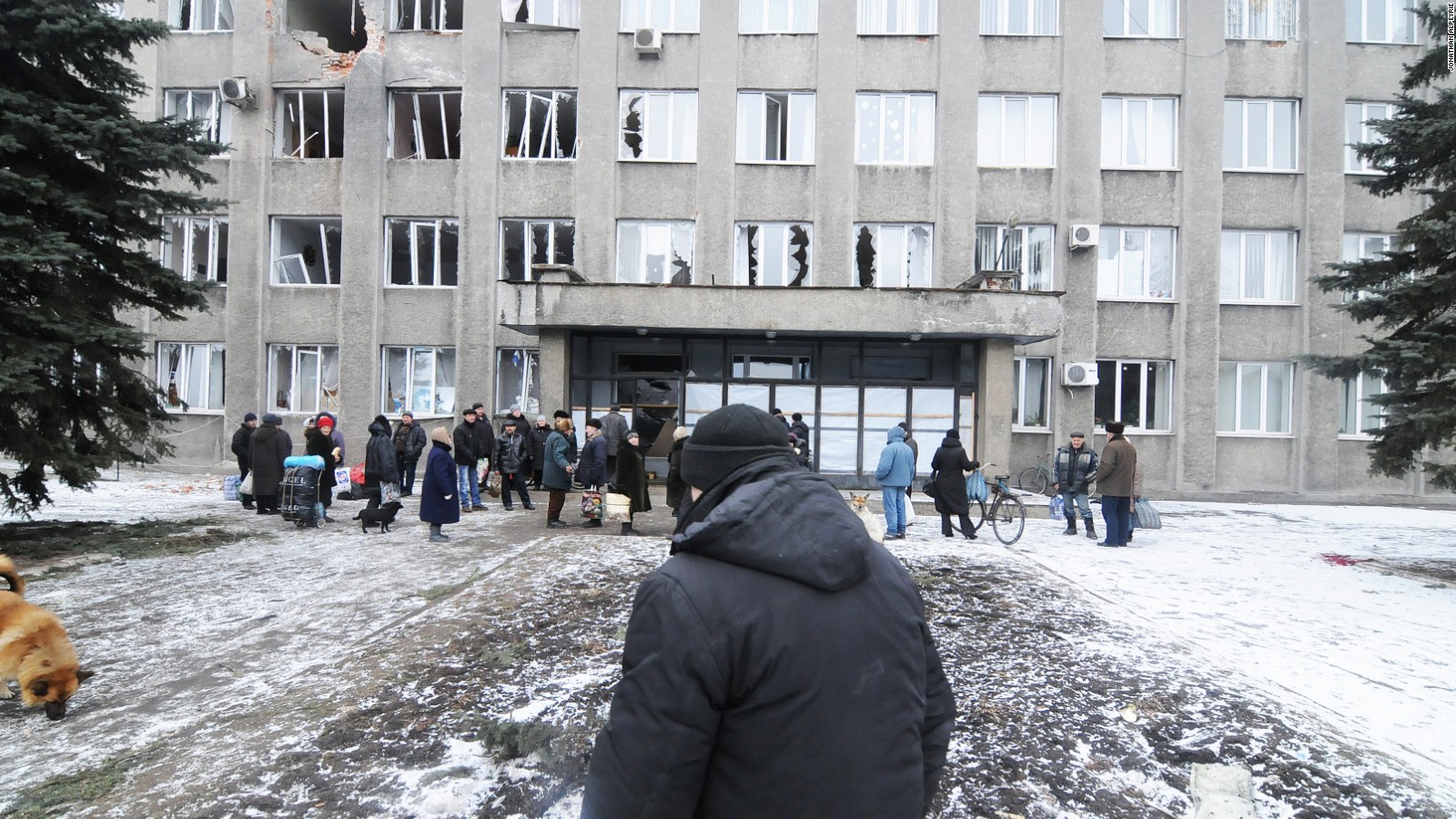
Four
people were killed and nine injured after a central bus station in
Donetsk city was hit by shelling Wednesday morning, according to the
official news agency of the Donetsk People's Republic, DAN.
The Donetsk city office website reported that two buses were hit and burst into flames.
In
the past 24 hours, 19 Ukrainian soldiers have been killed and 78
injured in the conflict zone in eastern Ukraine, a spokesman for the
Ukrainian military operation against the separatists, Vladislav
Seleznyov, told reporters in Kiev on Wednesday.
Shelling
in the town of Kramatorsk on Tuesday killed 12 civilians and injured
35, including children, with 29 military personnel also injured,
according to the Kiev-backed Donetsk regional authority.
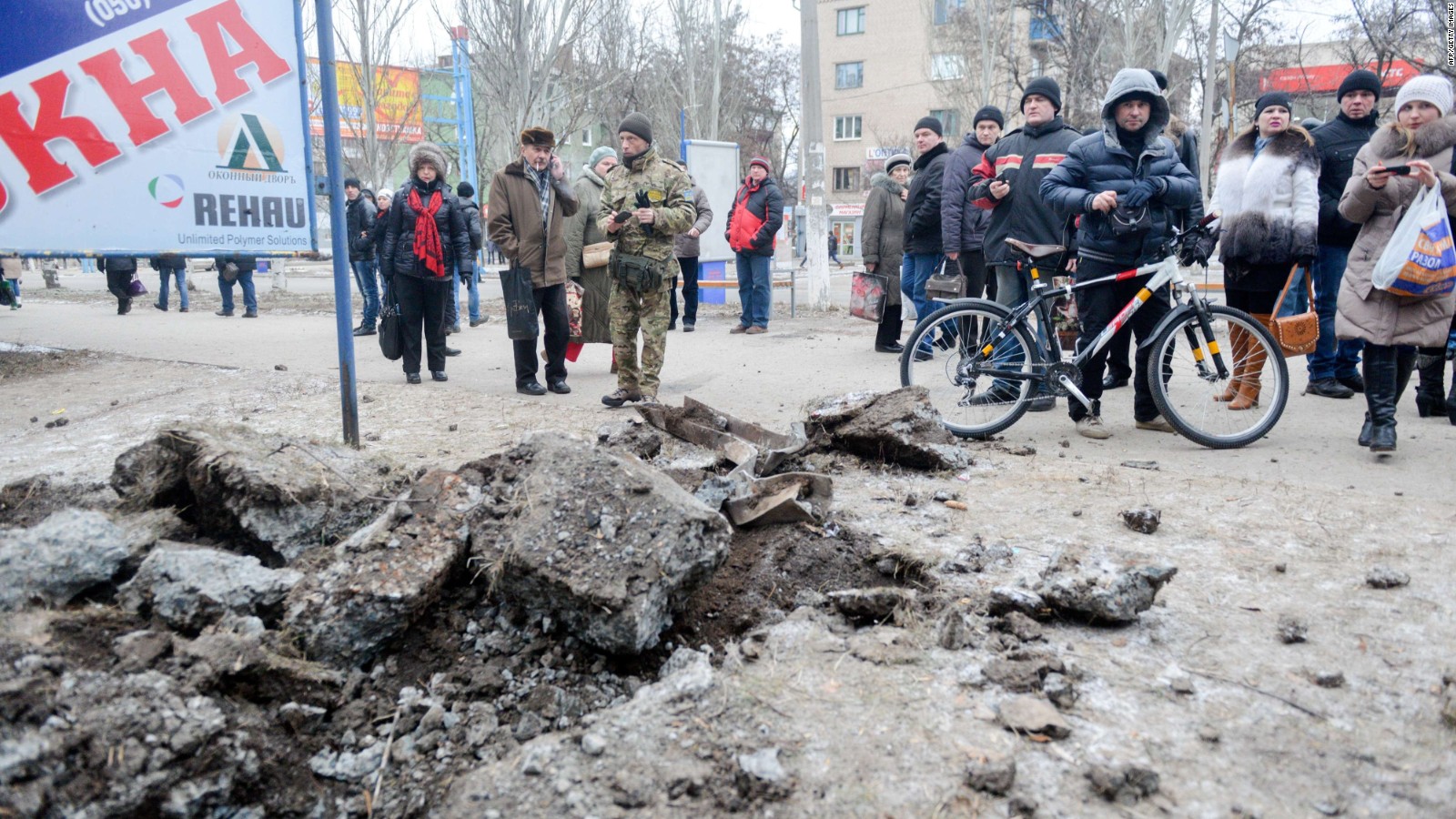
Kramatorsk,
deep inside Ukrainian-held territory, is the location of the main base
for the government's military operation against the separatists, which
it calls the anti-terrorist operation, or ATO.
Ukraine's
Foreign Ministry condemned what it said was "another bloody crime" by
the separatists and said Russia, which it accuses of sending heavy
weapons and troops across the border, should be held responsible.
The OSCE said its monitors saw evidence that cluster bombs had been used in Kramatorsk. Cluster bombs are banned by many states because of their deadly impact on civilians.
Fighting
continues around the strategically important town of Debaltseve, which
has been under siege by separatist forces for weeks.
Ukrainian
Gen. Oleksandr Rozmaznin told CNN the town remained under Ukrainian
control despite a separatist bid to attack the police station there. He
said there was no fighting in the streets.
A Ukrainian unit also launched an offensive Wednesday against the separatists near the city of Mariupol in the southeast.
Each side has accused the other of shelling civilian areas.
Obama: Seize opportunity for peace
U.S. President Barack Obama called Putin on Tuesday and urged him to seize the opportunity for peace, the White House said.
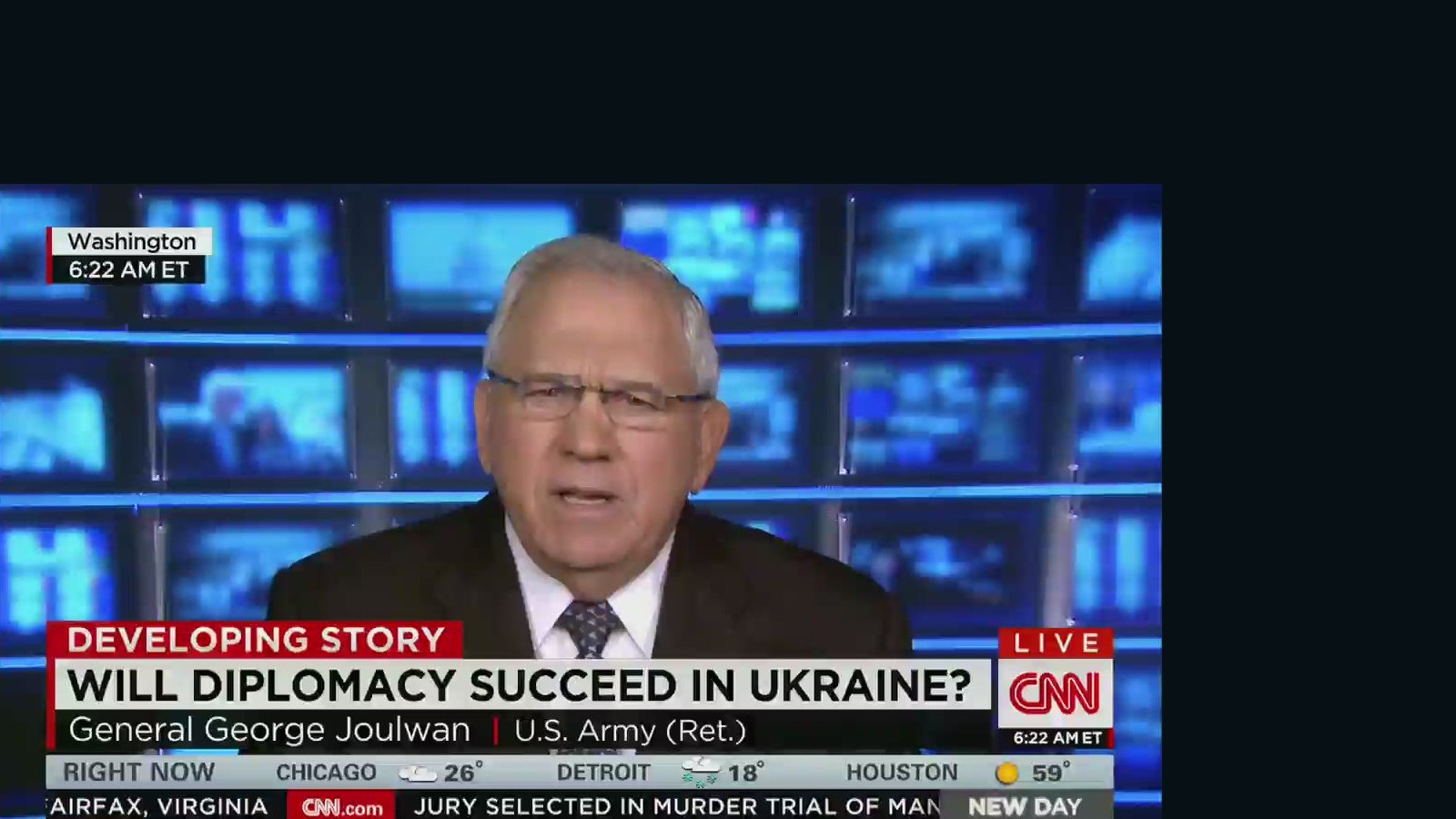
"The
President emphasized the importance of reaching and implementing a
negotiated settlement underpinned by the commitments in the (prior)
Minsk agreement. However, if Russia continues its aggressive actions in
Ukraine, including by sending troops, weapons and financing to support
the separatists, the costs for Russia will rise," the White House said.
Obama has not ruled out providing weapons to the Ukrainian military to help it defend against the separatists' advances.
A Kremlin readout of the call said it focused on finding a peaceful settlement of the crisis.
Russian
Foreign Minister Sergey Lavrov, speaking alongside his Greek
counterpart in Moscow on Wednesday, said there was "no military solution
to the crisis" in Ukraine.
Peace can
be achieved only through dialogue between Kiev and the people of eastern
Ukraine, he said, adding: "The rights of all people who live there need
to be respected."
Russian state news agency Sputnik reported that Lavrov would be traveling to Minsk for the talks.
The
European Union's Foreign Affairs Council agreed on additional sanctions
Monday against Russian and separatist interests but said their
implementation would be delayed for a week to "give space for current
diplomatic efforts."
Demilitarized zone?
The big challenge facing the leaders meeting Wednesday in Minsk is whether they can reach a peace agreement that will stick.
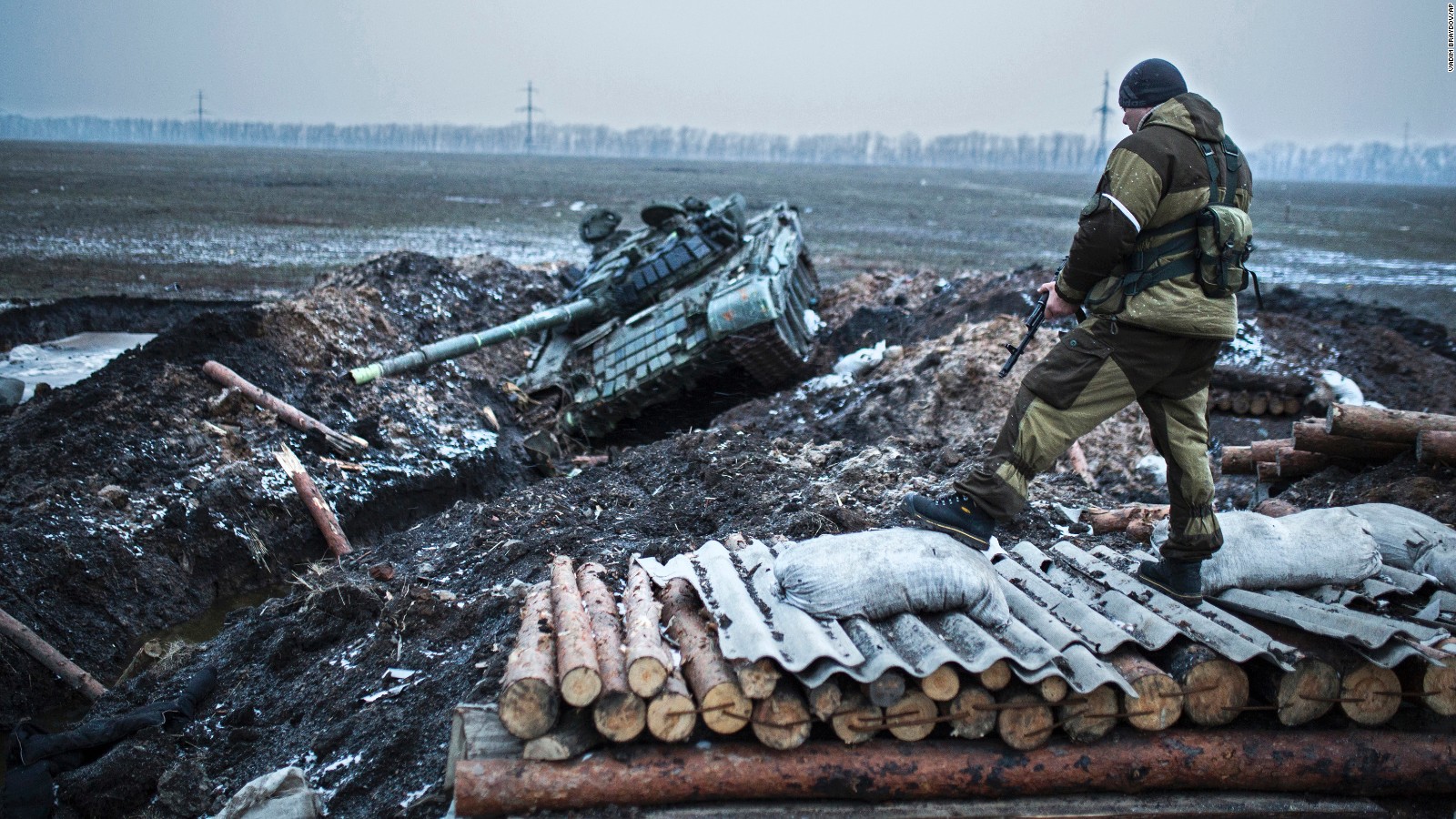
A
previous peace deal was signed in September, also in Minsk. It called
for a drawback of heavy weapons, self-rule in the eastern regions and a
buffer zone along the Russia-Ukraine border.
The new plan envisions a much broader demilitarized zone to run along the current front lines.
The September agreement quickly disintegrated, and the violence continued.
Russia
has steadfastly denied accusations that it is sending forces and
weapons into Ukraine. But top Western and Ukrainian leaders have said there isn't any doubt that Russia is behind surging violence and separatists' efforts to take over territory in eastern Ukraine.
All the while, the crisis in Ukraine, which stemmed from a trade agreement, has forced more than 1.5 million people from their homes, according to the United Nations.
CNN's
Nic Robertson reported from Minsk and Laura Smith-Spark wrote from
London. CNN's Nick Paton Walsh, Alla Eshchenko, Frederik Pleitgen,
Khushbu Shah, Laura Akhoun, Claudia Otto, Alexander Felton and
journalist Victoria Butenko in Kiev, Ukraine, contributed to this
report.
ccn
10 Şubat 2015 Salı
Don't Arm Ukraine, Russia Tells The West
Don't Arm Ukraine, Russia Tells The West
The warning comes a day before further
talks aimed at resolving the 10-month conflict in Ukraine, which shows
no signs of abating.
Moscow has hit out at calls for the West to arm Ukraine in the fight against rebels in the east of the country.
A Kremlin spokesman said it would be regarded as an attempt
to destabilise the situation - as would the extension of sanctions
against Russia.The warning came ahead of further talks on Wednesday aimed at ending the Ukraine conflict, which has cost more than 5,300 lives since April.
The planned meeting, in the Belarussian capital Minsk, follows last week's discussions between Russian president Vladimir Putin and Ukrainian leader Petro Poroshenko, led by Germany and France.
Representatives of Ukraine, Russia, separatists and the Organisation for Security and Cooperation in Europe are meeting later to lay the groundwork for Wednesday's negotiations.
Details of last week's talks have not been revealed although a French diplomatic official said they included the setting up of a demilitarised zone between Ukraine and Russia, which remained a sticking point.
US President Barack Obama has come under increasing pressure to provide military aid to Ukraine amid claims Russia has been arming the rebels - claims denied by Moscow.
After meeting German Chancellor Angela Merkel in Washington on Monday, Mr Obama said he had ordered his team to see "whether there are additional things we can do to help Ukraine bolster its defences in the face of Russian aggression".
However, Ms Merkel is firmly opposed to arming the Ukrainian military, saying it will hinder attempts to find a solution to the violence. "It has always proved to be right to try again and again to sort such a conflict," she said through a translator.
A peace deal was reached last Autumn but it has been repeatedly been violated by both sides, and bloodshed has increased significantly in the past two weeks.
On Tuesday, the Ukrainian national guard reportedly launched an offensive against pro-Russian separatists near the strategic south-eastern port city of Mariupol.
The day before, a powerful explosion rocked a chemical plant in the rebel stronghold of Donetsk after shelling by government forces.
According to the Ukraine military, seven of its soldiers have been killed and 23 wounded in fighting with rebels in the past 24 hours
A spokesman said fighting was particularly intense around the town of Debaltseve, a major rail and road junction northeast of Donetsk.
Meanwhile, about 2,000 Russian reconnaissance troops have started month-long exercises in southern Russia, Interfax news agency has reported.
Another news agency, RIA, said more than 600 were in Crimea, which Russia annexed from Ukraine in March.
On Monday, Kiev said about 1,500 Russian troops had crossed the border into Ukraine via rebel-controlled border posts over the weekend.
Russia has repeatedly denied supplying the rebels with troops or heavy weapons, but Western military experts say all the evidence suggests otherwise.
9 Şubat 2015 Pazartesi
Power tussle continues in Bihar, Governor rejects CM Manjhi's recommendation of Cabinet expansion
Power tussle continues in Bihar, Governor rejects CM Manjhi's recommendation of Cabinet expansion
Patna: Bihar Governor Keshari Nath Tripathi on Monday evening refused Chief Minister Jitan Ram Manjhi's recommendation for Cabinet expansion. Following his expulsion from Janata Dal United's primary membership the Bihar Assembly Speaker Uday Narayan Chaudhary declared Manhji an unattached member of the Assembly.
With political developments taking place at a rapid pace in Bihar, Manjhi met the Governor on Monday afternoon and claimed he was ready for a floor test to prove his majority in the Assembly.
"We are not running away from the floor test. We want to prove our majority. Nitish's election is not valid," Manjhi said. However, he added that voting should be by secret ballot and senior JDU leader Nitish Kumar should not be present in the House at the time when ballot boxes are opened. "The ballot boxes should be opened in the presence of two independent observers," he said.
After expulsion from JDU's primary membership the Bihar Assembly Speaker declared Manhji an unattached member of the Assembly.
Earlier in the day, Nitish also met the Bihar Governor to stake claim
to form government in the state with the support of 130 MLAs. In a show
of strength, Nitish paraded JDU, Rashtriya Janata Dal and Congress MLAs
at the Governor House in Patna.
The former CM's supporters threatened to protest in Delhi if the Governor doesn't allow him to hold a floor test in 48 hours.
After meeting the Governor, RJD chief Lalu Prasad said that they have made a unanimous request to make Nitish the CM of the state. "All parties, the RJD, CPI, Congress have given their letter of support to the Governor for Nitish Kumar to form government in Bihar.The Governor heard us and said that Manjhi will also be meeting him today. We have requested Governor to ask Nitish Kumar to take oath as the Bihar CM without delay." Lalu said.
Nitish also stated that they have urged the Governor to take a prompt decision.
While announcing the expulsion of Manjhi, party spokesperson KC Tyagi alleged that Bihar is not developing but crime has increased ever since he became the CM. "Operation Manjhi is being conducted by top leaders of BJP from Delhi," he also alleged.
Meanwhile, Manjhi's supporters moved the High Court against his expulsion for making anti-party statements.
In the 243-member Legislative Assembly, the JD(U) has 111 MLAs, BJP 87, RJD 24, Congress 5 besides 5 Independents, while 10 seats are vacant. The Nitish camp claims the support of 130 MLAs - 100 from JDU, 24 from the RJD, 5 from Congress and 1 from CPI.
6 Şubat 2015 Cuma
Erdoğan wants 400 deputies for his former AKP at Turkish elections
Erdoğan wants 400 deputies for his former AKP at Turkish elections
BURSA
“If we want a new Turkey at the June 7 elections, we will give it 400 lawmakers,” Erdoğan said, speaking at a public rally in the northwestern province of Bursa on Feb. 6.
He linked several key issues to this newly set goal, including his desired shift to the presidential system.
“What we say is that if we want a new constitution, we have to reach 400 lawmakers,” he said.
At least 330 deputies in parliament are needed to change the constitution.
“If we want the presidential system, then we have to give 400 lawmakers. If we want the resolution process to continue, we have to give 400 lawmakers so that a strong party can come to power to realize it,” Erdoğan added, referring to the ongoing talks to find a peaceful solution to the Kurdish issue.
He also slammed opposition criticism that the nominally impartial president should not hold partisan public meetings ahead of elections.
“Some people cannot stand such events. One of the [opposition] parties made a deputy apply to the High Election Board to make the president stop talking before the elections. But the board did not accept such an application. They want the president to sit in his chair in Ankara and not to intervene in their business. They just want the president to sign a few papers. But I have said I will not be a passive president. That is why 55 percent of this nation voted for us,” he said, referring to last year’s presidential election. Erdoğan became Turkey’s first publicly elected president in the Aug. 10 elections.
He repeated his wish for a change to presidential system from the current parliamentary system, labelling those who oppose this as “ignorant.”
“If this shirt is too tight for us, let’s change it for a new one,” Erdoğan said, adding that he had supported the presidential system since he was the mayor of Istanbul and suggesting that the current system has “hampered governments.”
The New York Times also received its share at the Bursa meeting, after it published an op-ed earlier this week penned by U.S.-based Islamic scholar Fethullah Gülen, Erdoğan’s arch-foe who he accuses of staging a “coup attempt” against the government through a corruption probe that emerged in December 2013.
“You see that the person in Pennsylvania [referring to Gülen] writes an article for a U.S. newspaper. Why does he do so? … Who are the bosses of this newspaper? How do they let him write for the newspaper? They have something in mind,” he said.
Gülen had harshly criticized the ruling AKP in his Feb. 3 article in the New York Times article titled “Turkey’s Eroding Democracy.”
Speaking in Bursa, Erdoğan also questioned why Gülen supporters were involved in the banking sector.
“Are you a scholar or a bank boss? Who does he lean on? Where are his bosses? You should inspect that,” he said, referring to the state run Savings Deposit Insurance Fund’s (TMSF) seizure of Bank Asya, the Islamic bank with links to Gülen, on Feb. 3.
Kaydol:
Yorumlar (Atom)